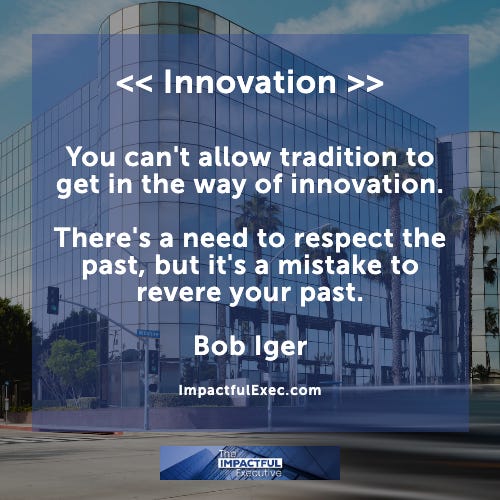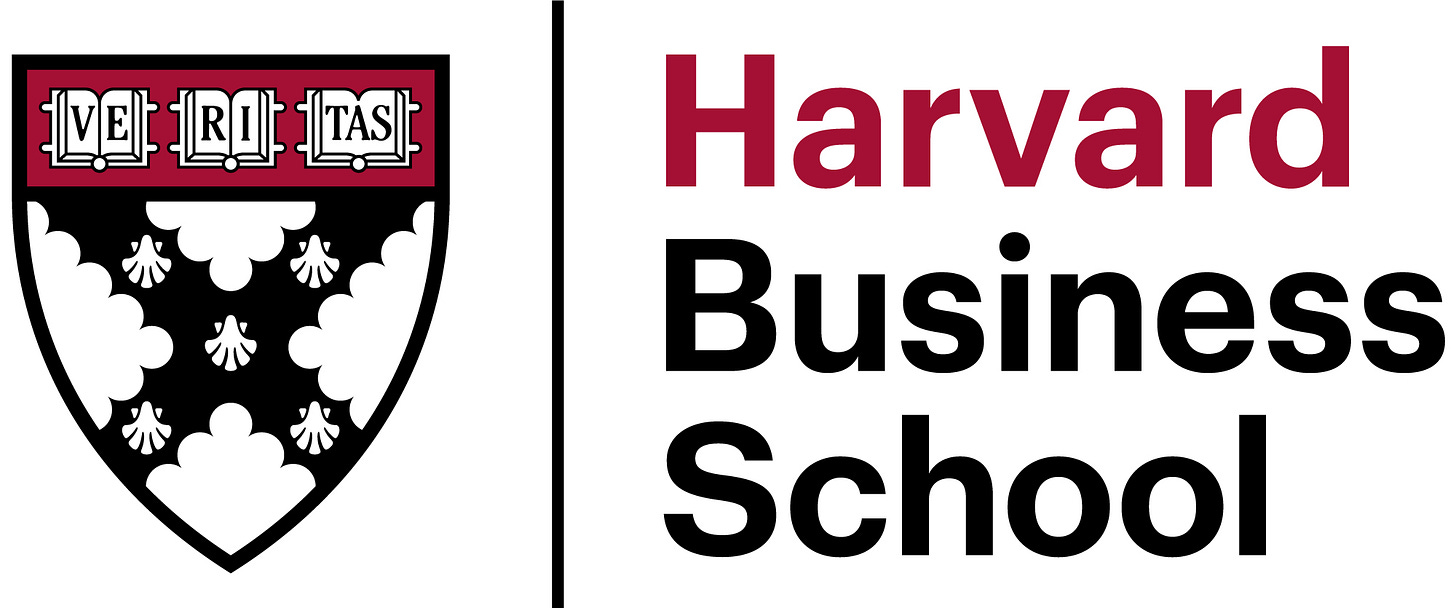Weekly Impact Brief (2023.Dec.17)
Assessing confidence levels when making decisions; strategies for mid-tenure CEOs; using AI to improve performance; fixing ineffective leadership development.
Note: We are in private beta. There are rough edges; this Brief will evolve in the coming weeks before we launch more broadly. We value your feedback! To share your input, click here.
Read time: 3 min
Welcome
It’s great to have you here!
This Brief offers leaders quick, fact-driven insights on trending articles released in the last week around leadership, innovation, and more. These are curated from top sources, such as McKinsey, Harvard, and many others, looking at elements of the Impactful Framework.
In case you missed the last Impact Briefs, here are the links for the previous two:
Thought Starter
Last week, we covered the element of “Culture”; this week, we cover “Innovation”.
Highlights
HBS Working Knowledge: Lessons in Decision-Making: Confident People Aren't Always Correct (Except When They Are)
McKinsey: How Mid-Tenure CEOs Find A New Gear
Wharton, Insead: How Much Can AI Improve Human Performance?
[Feature] MITSloan: Leadership Development Is Failing Us. Here’s How to Fix It
Impact Pulse
Each week, we review 200+ articles from 50+ premier academic and consulting firm sources to highlight a few “essentials” below.
Lessons in Decision-Making: Confident People Aren't Always Correct (Except When They Are)
Big Idea: Research shows that overconfident decision-makers often make poor choices, so managers should assess employees' confidence calibration - whether their certainty accurately reflects their competence - and elevate influences of workers who demonstrate wisdom by knowing the limits of their knowledge. Wise decisions come from understanding one's blindspots, not projection of bravado.
Quick Quote(s): "Self-selection often plays a critical role: Individual team members decide whether to speak up and volunteer their opinion on a topic, whether they ask for someone else’s help or tend to purely rely on their own assessment… When the right people are confident, they dominate the outcomes of markets or organizations, which is beneficial overall. But when the wrong people are more confident, wrong ideas dominate aggregate outcomes, making things worse overall."
How Mid-Tenure CEOs Find A New Gear
Big Idea: Mid-tenure CEOs need to reinvigorate performance by focusing on continued learning, taking an objective view of the business, charting the next growth wave, and future-proofing the organization to sustain success over the long term. This involves refreshing strategic priorities, evolving the leadership team, and preparing for potential crises down the road.
Quick Quote(s): "The probability that a CEO can move their company from the middle of the pack to top-quartile performance is only about one in 12, so they have to constantly elevate their ambition and think about the next frontier… It’s important to realize when you begin to plateau—that can start as early as two years in—and you need to reset the strategy… After every strategic discussion about the next direction, the second question is, 'Do we have the team to enable us to pull that off?'"
How Much Can AI Improve Human Performance?
Big Idea: AI systems like chess computers can serve as artificial training partners, improving human performance by providing accessible, scalable, and individualized training, though relying solely on AI has limitations compared to interactions with human partners. Combining AI training with real-world practice and human interactions offers a balanced approach to develop skills in complex strategic interactions.
Quick Quote(s): "Much like playing chess with another human, engaging in live negotiations, competitive games or role-playing exercises with human counterparts allows individuals to develop their ability to recognize and exploit human blunders, adapt to changing circumstances, and effectively respond to interpersonal dynamics."
Featured Summary
Below are our featured insights for the week: MITSloan on how to fix leadership development.
Leadership Development Is Failing Us. Here’s How to Fix It
Big Idea: Many leadership development programs fail to yield meaningful results - 70% only measure participants' positive reactions, not increased capabilities… Asking better questions can clarify if these elements, and their integration, are designed effectively. For example, only a few programs can link to outcomes like changes in participants' career trajectories or organization-level performance.
Quick Quote(s): “Good leadership development requires attention to three core elements — a program’s vision, method, and impact — and the integration between them… A leadership development program should be fundamentally about the growth of participants… We know from both experience and the literature that growth comes through crucible experiences of trial and tribulation, not from being comfortable in the moment."
Parting Thoughts
Thank you for spending your precious time with us.
We are still in early “beta” mode for the coming weeks. If you find this Brief useful, please forward it now!
Please feel free to reach out with any thoughts or questions that today’s insights might have sparked.
Impactfully yours,
Ali Monadjem (LinkedIn profile)
For The Impactful Executive Team
P.S. If you want to sign up for The Impactful Executive private email list or share it with a friend or colleague, you can find us here.






